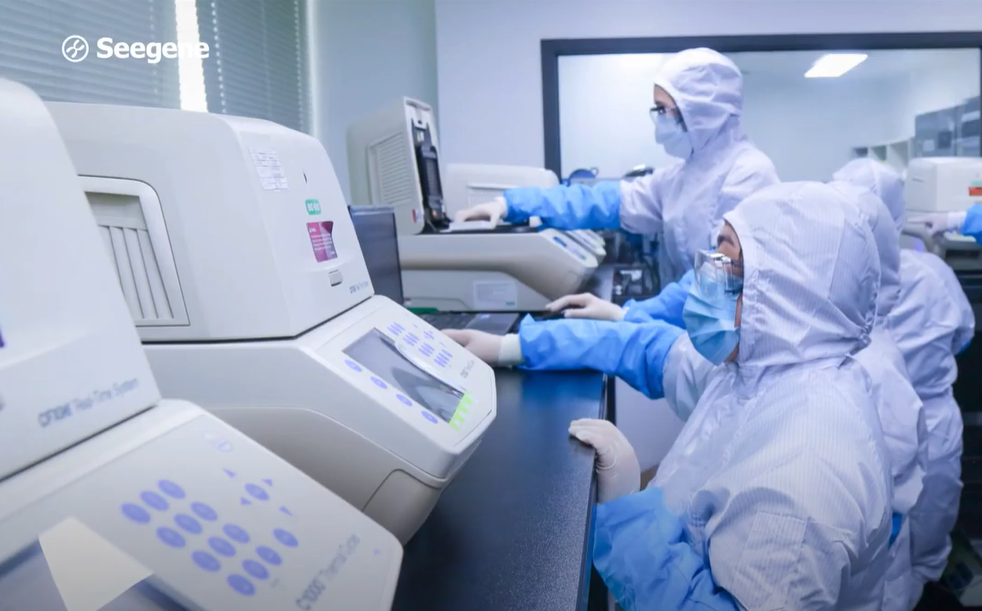Catching Up With The COVID-19 Variants

According to the COVID tracking project, over 355 million tests have been performed in the United States as of March 2021. The tests have played a crucial role on the frontlines of the COVID-19 pandemic, up until today. However, the current PCR tests are unable to address the new challenge we now face: the rapid spreading of the SARS-CoV-2 variants.
Many laboratories in the U.S. have continued their efforts to detect the variants by sequencing coronavirus genomes and reported a multitude of the variants spreading in various counties. Until recently, the only way to identify the variants has been viral genome sequencing, a very laborious time-consuming technique.
In early February 2020, just a few weeks after the first COVID-19 case occurred in South Korea, the leading molecular diagnostics company, Seegene, Inc., launched timely multiplex RT-PCR-based COVID-19 test kits (Allplex 2019-nCoV (SARS-CoV-2) Assay). Over 100 million tests were subsequently exported around the world. When the COVID-19 variants started spreading all across the globe, Seegene moved quickly and delivered once again, developing new multiplex RT-PCR-based test kits (Allplex™ SARS-CoV-2 Master Assay, SARS-CoV-2 Variants I Assay, and SARS-CoV-2 Variants II Assay ) that are designed to screen and identify the COVID-19 variants.
These tests look for notable mutations that are associated with variants discovered in the U.K., South Africa, Brazil, India, and other countries. These mutations affect the spike protein on the surface of the virus, with consequences that may cause a potential increase in transmissibility, virulence, and/ or a decrease in the efficacy of the COVID-19 vaccines.
“If you use the Master Assay developed using Seegene’s unique multiplex RT-PCR technique, you can detect the COVID-19 variants much easier and faster than SARS-CoV-2 genome sequencing,” says Dr. Min Cheol Lee, Chief Technology Officer, Seegene Inc. “If the Master Assay is positive, then you perform the ‘Variant I or II Assay’ to identify the variants – all in one PCR tube.” The ‘Master Assay’ catches the COVID-19 target genes (E, N, RdRp, and S) alongside the variant genes, including HV69/70 del, N501Y, E484K, Y144 del, and P681H. The ‘Variants IV Assay’ which detects other new variants will be coming soon.
Understanding where these variants are spreading at an individual level can be valuable for public health organizations throughout the world. It can help direct resources, such as vaccines and therapeutics, to areas most in need (recognizing that some variants reduce the efficacy of certain vaccines). Depending on the region, specific variant tracing could be helpful. Simply put, we need detailed information on the variants to cope with the evolving virus.
Seegene’s new variant tests boast a PCR turn-around time of just about two hours, helping laboratories move through their tremendous daily sample volumes efficiently. The tests can prescreen a suspicious new variant and provide insight into additional mutations, leveraging more of Seegene’s technology. With the tests, laboratories around the world will play an important role in the early detection of the variants and may help prevent their spread. Seegene’s new variant tests are undergoing clinical validation and regulatory review for clinical use soon. These tests are for Research Use Only in the U.S.
Using AI-based in silico technology and sophisticated bioinformatics, Seegene’s scientists continue to monitor and catch up with newly emerging variants. They regularly check and confirm that the target regions of Seegene’s COVID-19 tests are not affected by the mutations. Having confidence that viruses cannot defeat humans, the Seegene team always remains agile and vigilant.
For more information, contact us by clicking on this link
